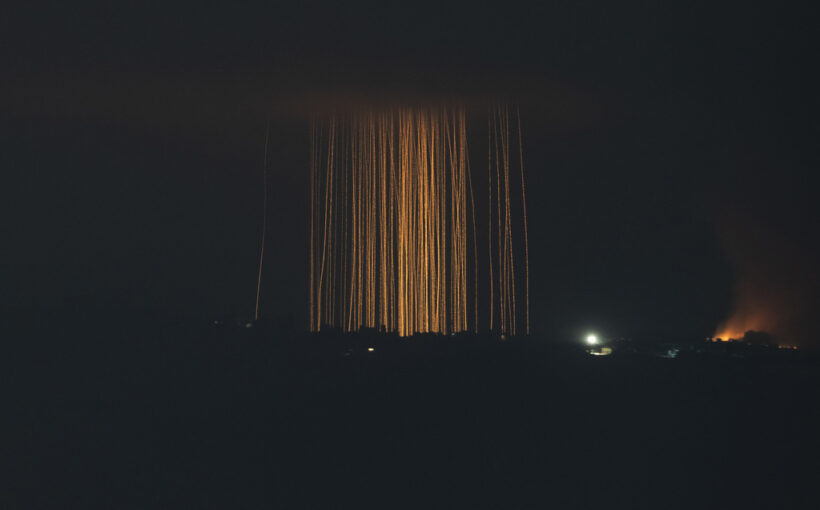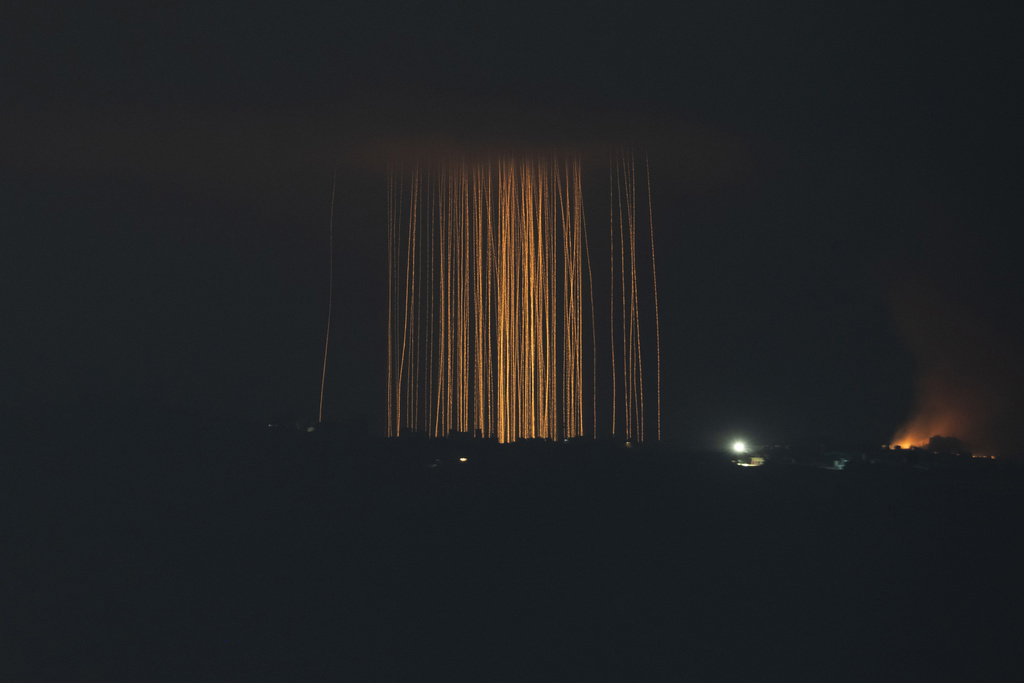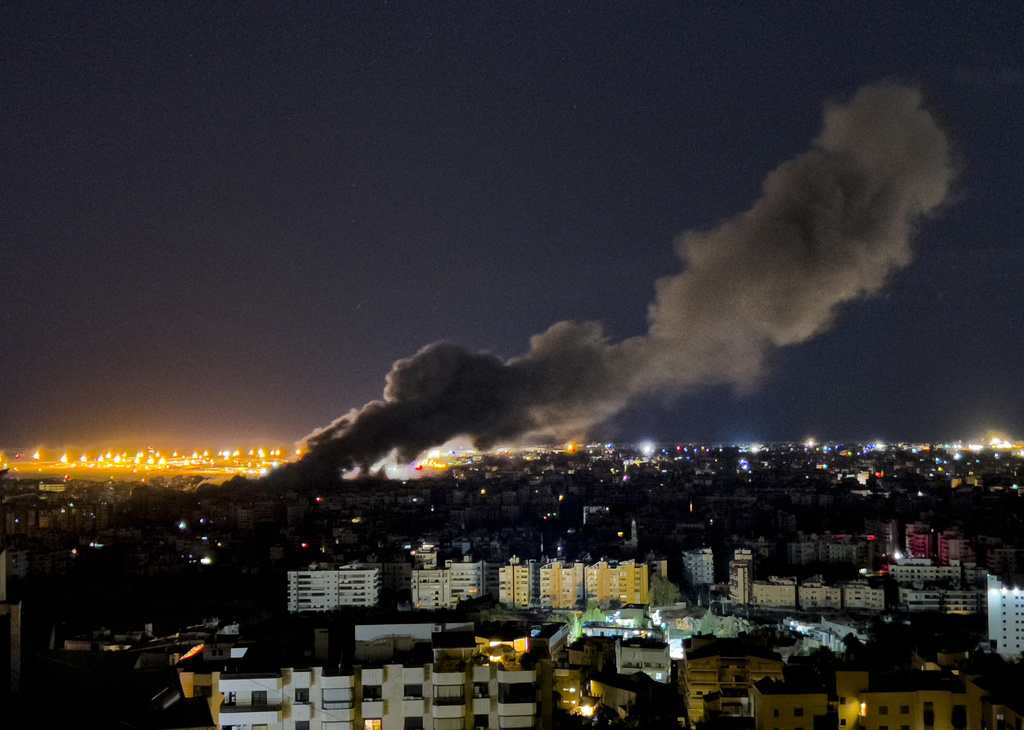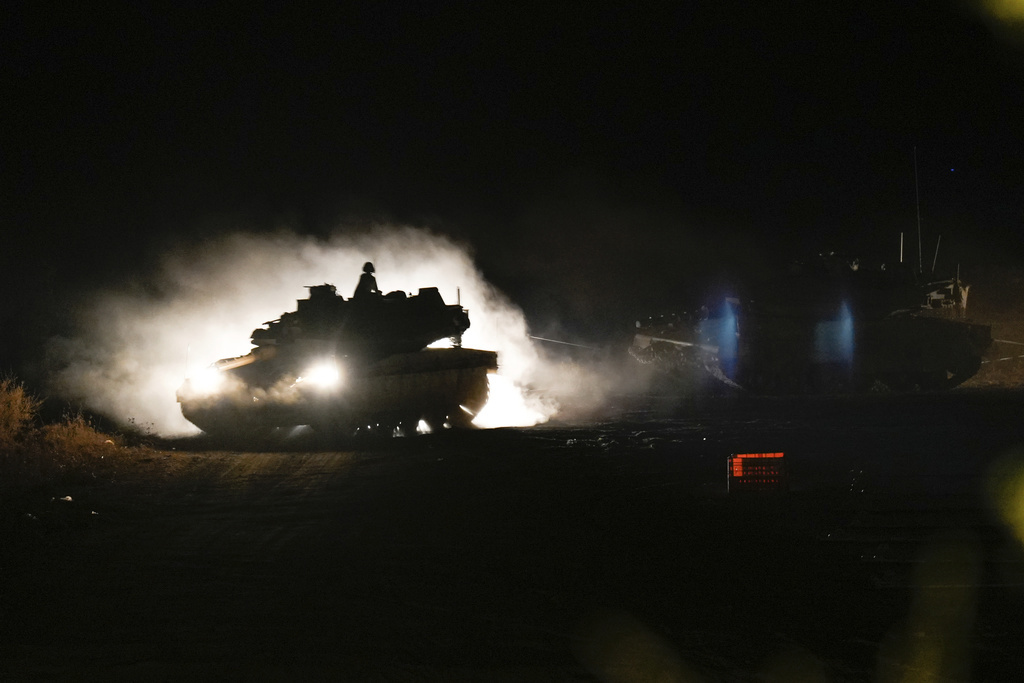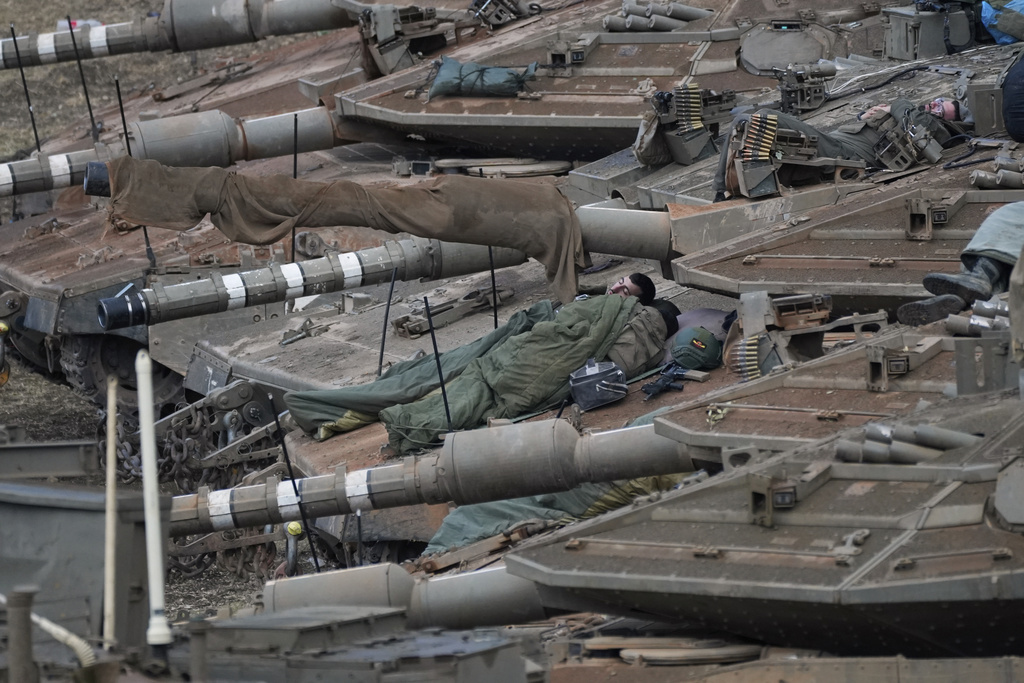Iran is preparing to “imminently” launch a ballistic missile attack on Israel, according to a senior US administration official, who warned “severe consequences” should it take place.
The official, who spoke on Tuesday on the condition of anonymity to discuss the matter, said the US is actively supporting Israeli defensive preparations.
This comes after the Israeli military on Tuesday warned people to evacuate nearly two dozen Lebanese border communities hours after announcing what it said were limited ground operations against Hezbollah.
White House officials did not immediately offer any evidence backing its intelligence finding. The official added that the administration was confident in the determination.
Iran’s state media has not suggested any attack is imminent. Iranian officials could not be immediately reached for comment.
Iran already launched an unprecedented direct attack on Israel in April, but few of the Iranian projectiles reached their targets. Many were shot down by a US-led coalition, while others apparently failed at launch or crashed while in flight. Even those that reached Israel appeared to miss their marks, experts and an AP analysis in September showed.
Israeli Prime Minister Benjamin Netanyahu said in a Tuesday statement that Israel is facing “large challenges” as it fights an Iranian axis. In the videotaped statement, he urges the public to listen to public safety guidelines from the army’s Home Front Command. He made no direct mention of a missile threat.
Hezbollah denied Israeli troops had entered Lebanon, but hours later the Israeli army announced it had also carried out dozens of ground raids into southern Lebanon going back nearly a year. Israel released video footage purporting to show its soldiers operating in homes and tunnels where Hezbollah kept weapons.
If true, it would be another humiliating blow for Iran-backed Hezbollah, the most powerful armed group in the Middle East. Hezbollah has been reeling from weeks of targeted strikes that killed its leader, Hassan Nasrallah, and several of his top commanders.
US ships and aircraft are already positioned in the region to assist Israel in the event of an attack from Iran. There are three US Navy destroyers in the Mediterranean Sea, an aircraft carrier in the Gulf of Oman and fighter jets arrayed throughout the region. All have the abilities to shoot down incoming missiles.
Israel advised people to evacuate to the north of the Awali River, some 60 kilometres from the border and much farther than the Litani River, which marks the northern edge of a UN-declared zone that was intended to serve as a buffer between Israel and Hezbollah after their 2006 war.
“You must immediately head north of the Awali River to save yourselves, and leave your houses immediately,” said the statement posted by the Israeli military on the platform X.
The warning applied to communities south of the Litani.
The border region has largely emptied out over the past year as the two sides have traded fire. But the scope of the evacuation warning raised questions as to how deep Israel plans to send its forces into Lebanon as it presses ahead with a rapidly escalating campaign against Hezbollah.
Anticipating more rocket attacks from Hezbollah, the Israeli army announced new restrictions on public gatherings and closed beaches in northern and central Israel. The military also said it was calling up thousands more reserve soldiers to serve on the northern border.
Questions raised over whether Israeli forces entered
An Associated Press reporter saw Israeli troops operating near the border in armoured trucks, with helicopters circling overhead, but could not confirm ground forces had crossed into Lebanon.
Ahead of the Israeli announcement of an incursion, US officials on Monday said Israel had described launching small ground raids inside Lebanon as it prepared for a wider operation.
Neither the Lebanese army nor a UN peacekeeping force that patrols southern Lebanon have confirmed that Israeli forces entered. The UN force said a cross-border operation would be a violation of Lebanese sovereignty.
Hezbollah spokesman Mohammed Afif dismissed what he said were “false claims” of an Israeli incursion. He said Hezbollah is ready for “direct confrontation with enemy forces that dare to or try to enter Lebanon”.
Rear Admiral Daniel Hagari, the Israeli military’s top spokesperson, claimed troops were conducting “localised ground raids” on Hezbollah positions in southern Lebanon to ensure Israeli citizens could return to their homes in the north.
“We’re not going to Beirut,” he said.
“We’re only going to areas next to our border and will do what is necessary to dismantle and demolish Hezbollah infrastructure.”
He said Israel had carried out dozens of small raids inside Lebanon going back to October 8, when Hezbollah began firing rockets into Israel after the outbreak of the war in Gaza.
He said Israeli forces had crossed the border to collect information and destroy Hezbollah infrastructure, including tunnels and weapons. Israel has said Hezbollah was preparing its own October 7-style attack into Israel. It was not immediately possible to confirm those claims.
An Israeli military official said troops taking part in the latest incursion were within walking distance of the border, focused on villages hundreds of metres from Israel. The official, who spoke on condition of anonymity in line with military regulations, said there had been no clashes yet with Hezbollah fighters.
The Israeli military was accused of lying to media in 2021 when it released a statement implying that ground troops had entered Gaza. The military played down the incident as a misunderstanding, but well-sourced military commentators in Israel said it was part of a ruse to lure Hamas into battle.
